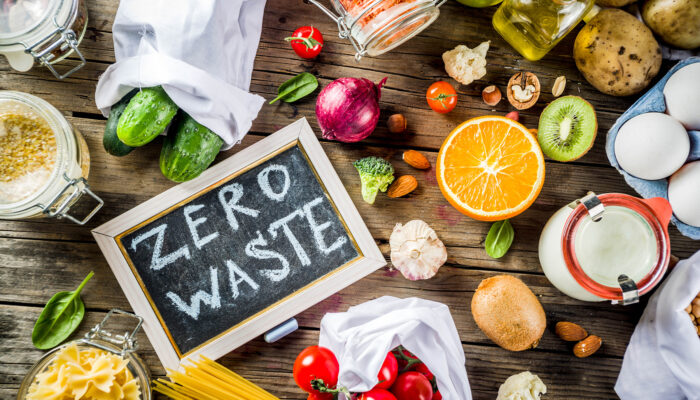Since Apple introduced the Apple Store in 2008, single-use apps have multiplied exponentially and become part of everyday life. Fast forward to today, and consumers in western markets like the US and EU are using single-purpose apps for everything from hailing a taxi and food delivery to gaming, online shopping, and banking. But in many emerging markets, a different story has unfolded. Super apps, which offer users several services in one app, dominate consumer lives, not single-use apps.
In China, for example, super apps have been a mainstay for more than a decade. WeChat, the original super app, is now indispensable to people’s lives and has become like an app store in and of itself. What started out as a humble messaging app in 2011 now enables over 1.2 billion active users to do everything from purchase goods from street vendors, book flights and hotels, transfer money for rent, play games, and much more. It’s like Facebook, Instagram, Twitter, WhatsApp, Apple Pay, and more, all wrapped up in one.
WeChat is one example of many. Super apps are by no means just limited to China. From Go-Jek, Kakao, and Grab to Rappi, Careem, Yassir, and Paytm, super apps have proliferated across the developing world through Southeast Asia, India, the Middle East, and Latin America. Sub-Saharan Africa has even begun to see the beginnings of a super app ecosystem in recent years, with several companies positioning themselves and vying to become Africa’s super app.
Trends in Africa’s emerging super app landscape
The last few years has seen significant transformations in Sub Saharan Africa’s mobile app ecosystem. Several startups, companies, and financial institutions have launched super app plays.
Gozem, operational in West and Central Africa, which started out as a ride-hailing service, launched its super app experience in August 2020. Today, Gozem provides various transport, e-commerce, delivery, and financial services in one app for users. Similarly, Ugandan-based ride-hailing firm SafeBoda recently expanded into super app territory. Using the SafeBoda wallet, users can now send money to each other at no cost, pay partner vendors and withdraw cash from hundreds of agents across Kampala. Nigeria’s Gokada, once a courier service, has begun allowing its users to send packages, order food, and hail cabs on one platform. In late 2021, Nigerian-based GIG Mobility, which provides mobility services across Africa, launched an electronic wallet and bill payment feature on its app to expand its offerings beyond road mobility.
Jumia, a Nigerian online marketplace, launched JumiaPay as a mobile money wallet back in 2016. In 2018, the company launched a multi-purpose e-commerce app, and more recently, in 2020, both of these apps were combined to create JumiaPay, a lifestyle, and financial services app.
Guaranty Trust Bank, a tier-one Nigerian bank, launched Habari in December 2018. Habari started as a banking app. However, the bank used its payments capabilities, distribution, and reach as a foundation to build a super app for music, shopping, lifestyle content, and more. Kenya’s Cellulant launched Tingg in October 2019, and South Africa’s Nedbank launched Avo in May 2020, both of which follow a similar playbook.
In 2019, Econet Global launched Sasai, a chat and payments app that combines chat with payments similar to WeChat. On Sasai, users can link their preferred payment method to the app and start making purchases. In countries like Zimbabwe, users can use Sasai for their regular EcoCash transactions like paying bills. Beyond this, Sasai recently partnered with Mastercard to collaborate and introduce new mobile and financial services.
Of course, there is also South Africa’s Vodacom, which in partnership with Alipay, recently launched Vodapay, a mobile payments solution for consumers and businesses’ lifestyle and payment needs. The app allows consumers to pay bills, send money, play games, and order takeaways, amongst other things.
Mobility and payments sit at the intersection of super-app use cases in Africa
The playbook used by Africa’s ‘first generation’ of super apps is a familiar one. Most, if not all, of the companies vying to build successful super apps, appear to be following the tried and tested path of their Asian predecessors. That is to say, they are typically mobility or payments driven or at the intersection of both. They start out with a core service (ride hailing, courier, mobile wallet) to drive adoption, trust, and engagement and then leverage these to provide additional services and thus become a super app.
Of course, it’s still early days. Gozem, Safeboda, Gokada, and others have positioned themselves as super apps and have encountered varying degrees of success. But, ultimately, they have yet to reach anywhere near the scale of the likes of Gojek, Grab, or Paytm.
Regardless of whether this first crop of super apps succeeds or not, mobility and payments as core functionalities are likely to be a key enabler of African super-apps in the future.
Mobility-driven super apps providing ride-hailing, transportation, or logistics services can leverage their fleet of drivers and end-users (most of whom are unbanked) to offer a range of other services such as payments and insurance to boost driver engagement.
Financial services institutions, e-commerce players, and telcos can leverage their reach and customer base to provide a range of payment services and enable heavily cash-based economies in West Africa to get physical cash loaded onto mobile wallets. They can also quickly add on various services such as ride-hailing that depend on financial transactions.
Ultimately, we’re likely to see the development of a range of complementary, and perhaps more targeted, super apps for specific domains and demographics. For example, driver financing and delivery network platforms such as MAX, Nigeria’s leading financing and technology platform for mobility, or Safeboda, originally based in Uganda, could build a super app for a driver target market. Other players who currently do merchant payments, such as Cellulant or PesaPal might eventually build a super app for their retail SME target market.
African super apps are having their moment
At DAI Magister, we see vast potential in Africa’s burgeoning super app landscape. We expect to see more apps seeking to expand their services and follow the payments and mobility-driven super app playbook that originated in Asia.
Africa is home to a young and increasingly digitally savvy population hungry for innovations to make their lives easier. What’s more, as the proliferation of affordable lower-end smartphones continues and the cost of data remains high, super apps offer a distinct advantage in terms of costs involved and storage space.
Of course, challenges remain. Perhaps the most prominent challenge super app developers will have to overcome is the diversity of regulations, policies, and cultures across the region. Sub-Saharan Africa consists of 46 countries, over 1000 languages, and populations experiencing vastly different economic and cultural realities. Super apps will have to navigate these different regulatory environments and cultures to scale and expand across borders, posing significant challenges and driving up costs.
Additionally, some areas in Sub-Saharan Africa have extremely low levels of smartphone connectivity. With limited access to large datasets, super app developers will find it more challenging to better understand customer needs and build the right solutions.
Building a brand and a trusted relationship will also be critical because expanding from a single-use app to a super app, especially one that offers financial services, requires trust and familiarity from users. Building brand recognition and user trust around a core functionality isn’t easy and takes time and investment.
It will be interesting to see what unfolds. With super apps already launched and investments on the rise, Africa is on the road to producing super apps that may one day rival those seen in other developing markets. We’re excited to continue monitoring new developments closely as the mobile app sector transforms in the years to come.
Read more about us.










